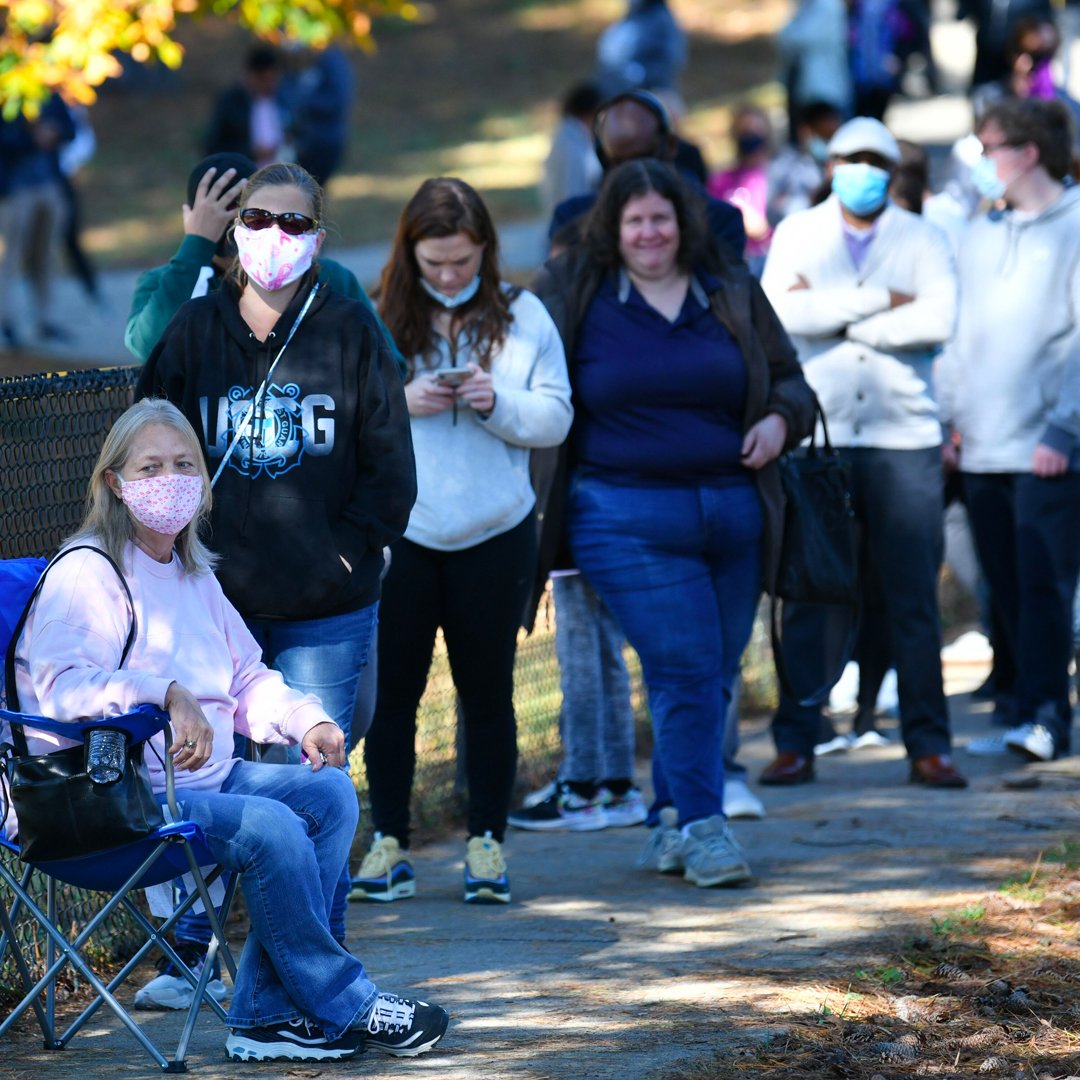Tired of Fighting to Vote? Democrats Want to Make Voting Easier.

Stories of Americans coming together to support each other by handing out food and water, performing with their bands, or placing restrooms at polling locations to help their fellow citizens weather long lines and cast their ballots are both heartening and terrifying.
Americans historically vote at lower rates than other developed democracies, and renewed enthusiasm for voting is a positive sign for the country moving forward.
But it should not be so difficult to vote. And there are not actually two sides to this coin: one party is actively and flagrantly trying to suppress votes, and the other wants as many people to vote as possible. One party wants minority rule while the other wants to be a party for all Americans.
Democrats, for example, have filed lawsuits requesting extensions for counting mail-in ballots to help ensure all votes cast by November 3rd are counted. Republicans, on the other hand, are currently fighting to prevent 127,000 votes cast in heavily Democratic Harris County, Texas from being counted because they were collected at drive-through dropoff sites.
And Democrats stand ready to expand voting rights if they have the votes in the Senate to do so. A blue wave can make that happen.
The House has already passed two important voting rights bills: HR1, the For the People Act and HR4, the Voting Rights Advancement Act.
Together, the bills attempt to protect and enhance voting rights, make it easier to vote and help combat the influence of money in politics. Importantly, the For the People Act does the following:
- Creates automatic voter registration
- Allows for universal online voter registration
- Creates a system for same day voter registration
- Makes election day a federal holiday
- Expands early voting universally
- Prohibits voter purges that kick eligible voters off the registration rolls
- Ends partisan gerrymandering through independent redistricting commissions
The Voting Rights Advancement Act will put teeth back in the Voting Rights Act, which was gutted in Shelby v Holder, by:
- Restoring key provisions of the Voting Rights Act that require pre-clearance for changes in the law the negatively affect voting or election fairness
- Allowing the Department of Justice more oversight authority over states or municipalities with repeated problems
These bills have already passed. All they need is a cooperative Senate to become law. You — voters — have the power to make these changes real. A power structure that intentionally suppresses the votes of any population is no true democracy. Do not let them take your vote.
